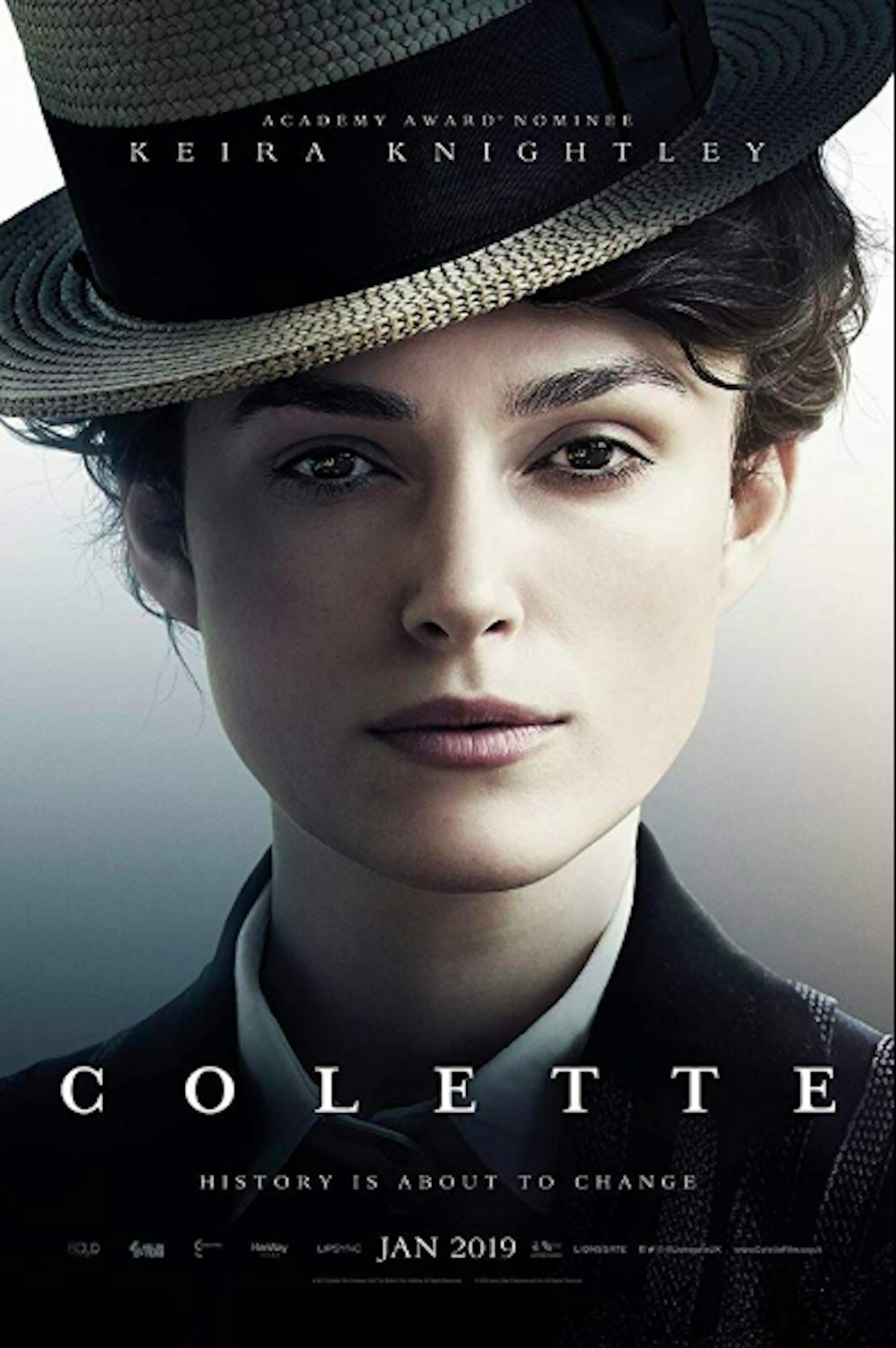"Colette," starring Keira Knightley as Sidonie-Gabrielle Colette (1873-1954), follows the French novelist and actress whose husband took credit for her work for years until she asserted herself as a writer and began to publish under her own name, famously taking up a string of female lovers along the way. The movie follows Colette from her marriage through her first publications, showing Colette's early years of slowly coming into her own as a writer and socialite from under the thumb of her husband.
Keira Knightley is endearing as ever, and she successfully portrays Colette’s daring and independence growth as she becomes older and finds herself through her writing. She walks taller and with an audacious sexuality that reads, “I’m married but definitely available.” It even seems as though her legendary jaw becomes sharper, although this may be due to her new short haircut halfway through the movie — which Colette's husband suggested she get to fulfill his fetish for a character she created. Knightley is clearly in her element; her canon of period pieces includes "Pride and Prejudice" (2005), "Anna Karenina" (2012) and "A Dangerous Method" (2011), among others. Interestingly, Knightleysaid in an interview with Variety that she doesn't "really do films set in the modern day because the female characters nearly always get raped ... whereas I've always found very inspiring characters offered to me in historical pieces."
She certainly finds such a character in "Colette." At 20, Colette marries writer Henry Gauthier-Villars(Dominic West), who was known by the pseudonym "Willy" and employed a host of ghostwriters. After he spends too much money drinking, gambling and womanizing with the other libertines of Paris, he suggests that Colette write a novel based on her memories as a schoolgirl. Thus the "Claudine" series is born, published under Willy's name, and becomes an instant classic. As each novel becomes more and more popular, Colette becomes exasperated with her husband's controlling attitude and eventually becomes a bold writer and Renaissance woman herself. Later in life, she takes on female lovers in public society and becomes a stage actress, writing other classics like "La Vagabonde" (1910), "Cheri" (1920) and "Gigi" (1944).
The movie mostly follows Colette’s marriage with her husband, which is unfortunately the least interesting of her many relationships. After a fling with an American socialite early in the marriage (and with her husband's approval), she continues her affairs and her writing, both of which only become more scandalous. Her sexuality becomes common knowledge among Paris’ elite, and she eventually settles on a relationship with Missy, or Mathilde de Morny (Denise Gough). Missy dresses in men’s clothes and smokes cigars. Some modern historians theorize that she was a transgender man (Missy sometimes used the name “Max”), although such distinctions were not made at the time, and this is a matter of speculation only. In real life Colette had a second marriage to diplomat Baron Henry de Jouvenel and began an affair with her 16-year-old stepson when she was 47. These developments in Colette’s later life may have given even more depth to her character had they been explored in the movie.
That being said, even Missy does not get the presence she deserves in “Colette,” especially compared to Willy. “Colette” seems eager to feature Missy not just as a notable character in Colette’s life, but as a way for the movie to bring up timely issues like homophobia and transphobia. Missy is referenced with both male and female pronouns, although in one scene, Colette corrects Willy’s use of “she” with exasperation, implying that Missy prefers male pronouns. Another scene depicts Missy describing putting on her brother’s school uniform as a child and feeling “at home for the first time.” But, her relationship with Colette feels more like an afterthought than a new chapter. The couple meets seemingly by chance, and Missy asserts, unprompted and a little too conveniently, that she always knew Colette was the real writer of the “Claudine” series. She is set up as a perfect alternative to Willy, one who understands Colette and treats her well, but even her storyline becomes an antidote to the story of Colette’s marriage with Willy, not a journey in its own right.
Some parts of the movie are moving because they are true, save the on-stage kiss between Colette and Missy that caused a riot in a theater. Others are simply cheesy, as when Colettebites at her husband in the movie's climax, "I am the real Claudine," and Willy's indignant but pathetic "[Stop] ... I command you!" as she storms out of the room. "Colette" is a warm, safe nod to a legendary novelist, but had it been a proper study that broke out of her marriage's grasp, like the real Colette did, it might have been a knockout.






